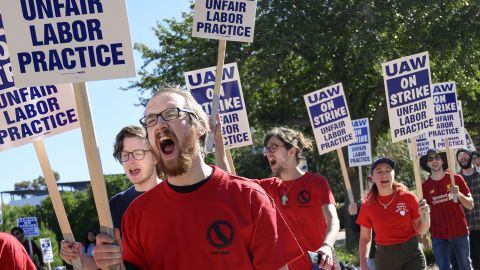OPINION
Three Truths to Address Sexual Exploitation, Abuse & Harassment in the UN

The UN Secretariat building in New York City. Credit: UN Photo/Manuel Elías
NEW YORK, Nov 15 2022 (IPS) - The U.S. Government has recently published ‘Engagement Principles’ on Protection from Sexual Exploitation Abuse & Sexual Harassment within International Organizations’, and while any involvement from Member States is to be encouraged, these principles do not address the fundamental need for either deterrence or for accountability.
The concept of a “survivor-centred approach” – sadly – is an irrelevant sound bite to appease a political lobby. Post-incident care and support for the victim is not only admirable but very necessary but serves no deterrent purpose, and any bearing it might have on the prosecution of an offender will be indirect at best.
Nothing done for victims after an incident will prevent future victims being similarly assaulted.
One of the accepted tenets of criminology is that criminal activity is not discouraged by procedures, committees, working groups or focal points, nor is there any deterrent effect in increasing the penalty for anyone convicted of the offence; criminal activity is minimised by maximising the likelihood of the perpetrator being held accountable for their actions. The UN choses to ignore that, and will not acknowledge three basic truths the Member States must recognise:
FIRST: that any sexual assault is a serious criminal offence that should be prosecuted as such.
In the real world, where both a criminal case and a civil one arise from the same event; the civil case will be sisted to give priority to the more important criminal prosecution. The UN, however, does the opposite and insists that their administrative investigation take priority over the criminal investigation of the same incident.
As a result, even where a rape is reported in the UN, the chances of the perpetrator being successfully prosecuted in a criminal court is minimised to the point where the risk is insignificant.
SECOND: that while UN personnel require and deserve the protection of the 1946 Convention on Privileges & Immunities, that Convention does not grant immunity for sexual offences.
Abuse of the concept of immunity has greatly influenced the evolution of the UN culture into one of narcissistic entitlement, where sexual predators believe they can act with impunity.
Functional Immunity was afforded to UN staff members under the Convention which states, very clearly, in Section 18:
Officials of the United Nations shall : (a) be immune from legal process in respect of words spoken or written and all acts performed by them in their official capacity; (Emphasis added.)
Given that any sexual activity – whether consensual, contractual, or coerced – is not part of the “official duties” of any UN staff member; it is self-evident that no immunity can apply in the case of any sexual offence. If such an offence appears to have been committed; the host nation must therefore have jurisdiction over the matter.
The Convention was adopted to protect UN staff against harassment by a hostile government, and in those conditions, there will always be a risk that criminal charges might be fabricated. There is no doubt, therefore that the UN must take an interest in any accusations against staff members, but as soon as their preliminary enquiries establish reasonable grounds to believe that a sexual offence has been committed; the matter should be handed over to local law enforcement immediately – for them to proceed with a criminal investigation.
The Convention was never intended to protect offenders from the consequences of their own criminality. That is made clear in Section 20 which reads:
Privileges and immunities are granted to officials in the interests of the United Nations and not for the personal benefit of the individuals themselves. The Secretary-General shall have the right and the duty to waive the immunity of any official in any case where, in his opinion, the immunity would impede the course of justice and can be waived without prejudice to the interests of the United Nations.
If the Secretary-General can give an example of how the prosecution of a sexual predator could possibly “prejudice to the interests of the UN” – the world deserves an explanation.
The UN interprets the Convention to protect UN staff members from sexual offences even when no staff member is accused of any such thing, as was demonstrated in 2015 by the Organization’s response when French authorities sought to investigate allegations against French peacekeepers in the Central African Republic.
The Convention states in Section 21:
The United Nations shall cooperate at all times with the appropriate authorities of Members to facilitate the proper administration of justice, secure the observance of police regulations and prevent the occurrence of any abuse in connection with the privileges, immunities and facilities mentioned in this article.
That is a provision the Secretariat appears to ignore, because “immunity” was cited as the reason why UN staff members could not assist French investigators by introducing them to victims. The UN has never explained how that could be justified.
Immunity was created for the best of reasons, it has now become part of the problem.
THIRD: that ‘self-regulation’ by the UN has clearly been a failure; the Organization cannot properly investigate itself.
What most people fail to appreciate about the corruption in the UN is that it is almost always “procedurally correct” – which may mean the resulting administrative decision cannot be challenged before the UN Dispute Tribunal, it does not make the decision ethical or legitimate – but OIOS investigations will not pursue any such line of enquiry for fear of what it might reveal.
Complaints about malpractices, misconduct, bias or abuses of authority by investigators are common, but are routinely ignored – because there is no independent oversight of OIOS (Office of Internal Oversight Services) and the management of the office is tied up in the same network of mutually supportive patronage that is ingrained in the UN culture.
The OIOS “leadership” is widely believed to do the bidding of the USG/DMSPC in particular, legitimising the most patent retaliation – because the USG/DMSPC protects them from any accountability for their own shortcomings. The former Director of Investigations admitting that their primary objective was simply “to get the Americans off our backs” – for which, naturally, he was promoted.
As for sexual misconduct investigations; the term “survivor-centered approach” makes little sense. It is described as an innovative approach but in any sexual assault, the victim has always been the most important witness – so how exactly were these cases actually investigated in the past?
Post-incident care for the victim has no bearing on the burden of proof. Cases must be proved by established facts, and that requires diligent and competent investigators – not “investigators” promoted for their personal loyalty, or whose misconduct has routinely been overlooked for the same reason.
Gross incompetence by managers, rampant misconduct and corruption anywhere in the UN must be considered serious in its own right, but incompetence, misconduct and corruption in the investigative function is more serious because that facilitates the corruption everywhere else.
Einstein is said to have defined insanity as doing same thing over and over, and expecting a different result, but that has been the UN’s approach to investigating sexual misconduct for the last 20 years.
The solution clearly lies with someone capable of thinking differently – but within the UN culture; anyone who dares to think differently is a dangerous heretic who cannot be promoted.
Peter Gallo is a lawyer and former OIOS investigator, whose disagreements with the Organization began when OIOS sought to demand that as an investigator, he must “never ask questions just to satisfy his curiosity” – a bizarre instruction that the UN did not consider even unusual, despite the fact that no one was ever able to point out a single example of his ever having done so….He has written extensively on the UN’s failure to properly investigate misconduct, been quoted in the media, featured on television documentaries and twice testified before congressional committees on the subject.
IPS UN Bureau









